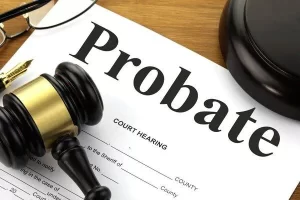Can Making A Gift Before Applying To Medicaid Save Assets?
Understanding the Complexities of Medicaid Planning
Introduction
Medicaid is a vital government program that provides healthcare coverage to eligible low-income individuals, including seniors. However, Medicaid eligibility is subject to strict financial criteria, and many seniors worry about the impact of their assets on their eligibility. One common question that arises is whether making a gift of assets before applying for Medicaid can help save those assets. In this comprehensive guide, we’ll explore the complexities of Medicaid planning and the implications of asset gifting.
Medicaid Eligibility and Asset Limits
Medicaid eligibility is primarily determined by income and assets. To qualify for Medicaid, applicants must meet specific income and asset limits set by their state’s Medicaid program. In New York, these limits can vary, and it’s essential to understand the guidelines in your particular state.
Medicaid Asset Limitations in New York
In New York, as of my last knowledge update in September 2021, the Medicaid asset limit for a single applicant is generally $15,900. However, certain assets are considered exempt, such as the primary residence (up to a specific equity limit), personal belongings, and one vehicle. These rules can change over time, so it’s crucial to consult with an experienced Medicaid planning attorney for the most up-to-date information.
Asset Gifting and Medicaid Eligibility
Asset gifting involves transferring property or funds to another individual as a gift. Some seniors consider making substantial gifts to family members or loved ones before applying for Medicaid in an attempt to reduce their countable assets and meet the eligibility requirements.
The Medicaid Look-Back Period
Medicaid has implemented rules to prevent individuals from giving away their assets shortly before applying for benefits. This is known as the “look-back period.” During this period, Medicaid reviews all financial transactions, including gifts, made by the applicant or their spouse. In New York, as of my last update, the look-back period was 60 months (five years).
Penalties for Asset Transfers
If it is discovered that the applicant or their spouse made gifts or transfers of assets during the look-back period, Medicaid may impose a penalty. This penalty results in a period of Medicaid ineligibility, calculated based on the value of the assets transferred. The purpose of this penalty is to discourage individuals from giving away assets solely to qualify for Medicaid.
Exceptions to Asset Transfer Penalties
While asset transfers during the look-back period can lead to penalties, there are certain exceptions and exemptions. These may include transfers to a spouse, transfers of exempt assets, or transfers for fair market value. Consulting with a Medicaid planning attorney is essential to explore these exceptions and understand how they apply to your specific situation.
Medicaid Planning Strategies
Given the complexities of Medicaid eligibility and asset gifting, it’s crucial for seniors and their families to engage in careful Medicaid planning. Here are some strategies that may be considered:
Consult with an Elder Law Attorney
An experienced elder law attorney, knowledgeable about Medicaid rules in your state, can provide invaluable guidance. They can help you navigate the complex regulations, assess your assets, and develop a personalized Medicaid planning strategy.
Timing Matters
Understanding the look-back period is essential. Engaging in asset gifting well in advance of needing Medicaid can reduce the risk of penalties. Proper timing is crucial to ensure your assets are protected.
Explore Exempt Assets
Not all assets are counted when determining Medicaid eligibility. Explore exempt assets, such as your primary residence, and understand the equity limits that apply. Properly structuring your assets can help you maximize exempt resources.
Consider Irrevocable Trusts
Irrevocable trusts can be used as a Medicaid planning tool. Assets transferred to such trusts are typically not counted for Medicaid eligibility purposes. However, once assets are placed in an irrevocable trust, you may lose control over them, so careful consideration and professional guidance are necessary.
Plan for Spousal Protections
Spouses of Medicaid applicants have specific protections, including minimum and maximum resource allowances. Understanding these protections and planning accordingly can help ensure the healthy spouse is not left in financial distress.
Conclusion
Medicaid planning is a complex and highly regulated area of law. While asset gifting before applying for Medicaid may be a strategy, it comes with significant risks and potential penalties. It’s essential to engage in careful planning, consider alternative strategies, and consult with an experienced elder law attorney who can guide you through the process.
At Morgan Legal Group P.C., we specialize in elder law and Medicaid planning in New York City. Our team of experienced attorneys can provide personalized advice and solutions to protect your assets while ensuring Medicaid eligibility. Contact us today to discuss your specific needs and concerns.












